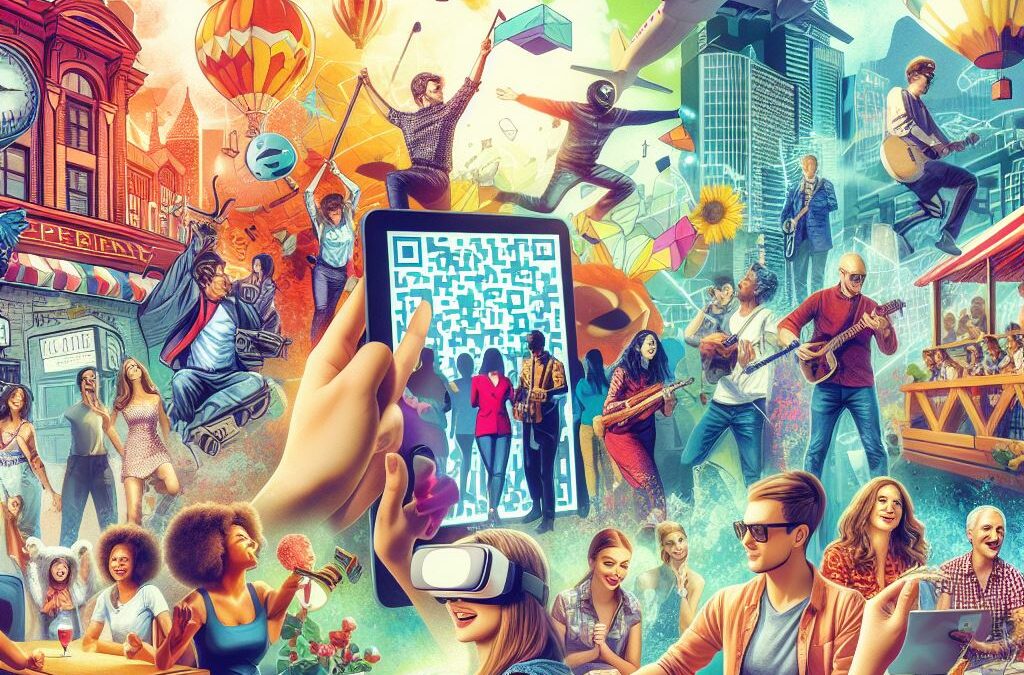Embracing the Experience Economy: Why It’s Essential for Businesses Today
In today’s rapidly evolving consumer landscape, the experience economy has emerged as a dominant force, reshaping how businesses engage with their audience. No longer is it sufficient to merely offer products or services; instead, businesses must prioritize creating memorable and engaging experiences that resonate with consumers on a deeper level. This seismic shift is not just a passing trend but a fundamental change in consumer behavior that drives the success of businesses across various industries.
The Rise of the Experience Economy: A Paradigm Shift in Consumer Preferences
The experience economy represents a paradigm shift in consumer preferences, driven by many factors reshaping how people interact with brands and make purchasing decisions. One of the primary drivers of this shift is consumers’ changing mindset, who increasingly prioritize experiences over material possessions. Consumers seek experiences beyond mere transactions, fulfillment, happiness, and meaningful connections in a world of products and services.
Shifting Consumer Preferences: From Materialism to Experience
Traditional notions of success and fulfillment centered around the accumulation of material possessions are giving way to a new ethos focused on experiences. Today’s consumers are less concerned with owning physical things and more interested in investing in experiences that enrich their lives and create lasting memories. The burden of ownership is replaced by the joy of experiencing, driving demand for unique, immersive experiences that offer genuine value and meaning.
The Role of Social Media in Fueling the Experience Economy
In the digital age, social media platforms have become powerful catalysts for the experience economy, shaping consumer preferences and driving demand for shareable experiences. Platforms like Instagram and Facebook have transformed how people discover, share, and engage with experiences, creating a culture where the value of an experience is measured not only by its intrinsic worth but also by its potential for social validation and recognition.
The Power of Shareable Experiences in a Globalized Marketplace
In an era of globalization and mass production, the commoditization of products has made it increasingly challenging for businesses to differentiate themselves based on price and features alone. As a result, businesses are turning to experiences to create value and differentiation in a crowded marketplace. By offering unique, memorable, and shareable experiences, businesses can forge deeper connections with their audience and stand out.
Navigating the Experience Economy: Strategies for Success
To thrive in the experience economy, businesses must adopt a customer-centric approach that prioritizes creating memorable and meaningful experiences. Here are some strategies to consider:
Focus on Experiences, Not Just Products
Instead of solely focusing on selling products or services, consider elevating your offering by incorporating experiences. Whether it’s hosting workshops, events, or immersive experiences, find ways to engage with your audience on a deeper level and create lasting memories.
Design Memorable and Shareable Experiences
In today’s digital age, the success of an experience often hinges on its shareability. Design experiences that are visually appealing, Instagram-worthy, and inherently shareable, encouraging your audience to spread the word and amplify your brand’s reach.
Foster Emotional Connections with Your Audience
The most memorable experiences are those that evoke emotions and forge genuine connections with your audience. Whether through storytelling, personalization, or immersive elements, strive to create experiences that resonate emotionally and leave a lasting impression.
Continuously Innovate and Evolve
In a dynamic and rapidly evolving landscape, staying ahead of the curve is essential to continuously innovating and evolving your offerings. Monitor emerging trends, listen to customer feedback, and be willing to adapt and iterate to meet your audience’s changing needs and expectations.
In Conclusion
The experience economy represents a seismic shift in consumer behavior, driven by a desire for meaningful experiences that enrich our lives and create lasting memories. By embracing the principles of the experience economy and prioritizing creating memorable and engaging experiences, businesses can cultivate a more loyal customer base, differentiate themselves from the competition, and thrive in today’s hypercompetitive marketplace.
Follow us on LinkedIn – Build, Grow, Convert.

With over twenty years of experience, we’ve made a lot of mistakes, so you don’t have to. Leverage that knowledge to BUILD your business, GROW your brand awareness or thought leadership, and ultimately CONVERT followers into paying customers.


